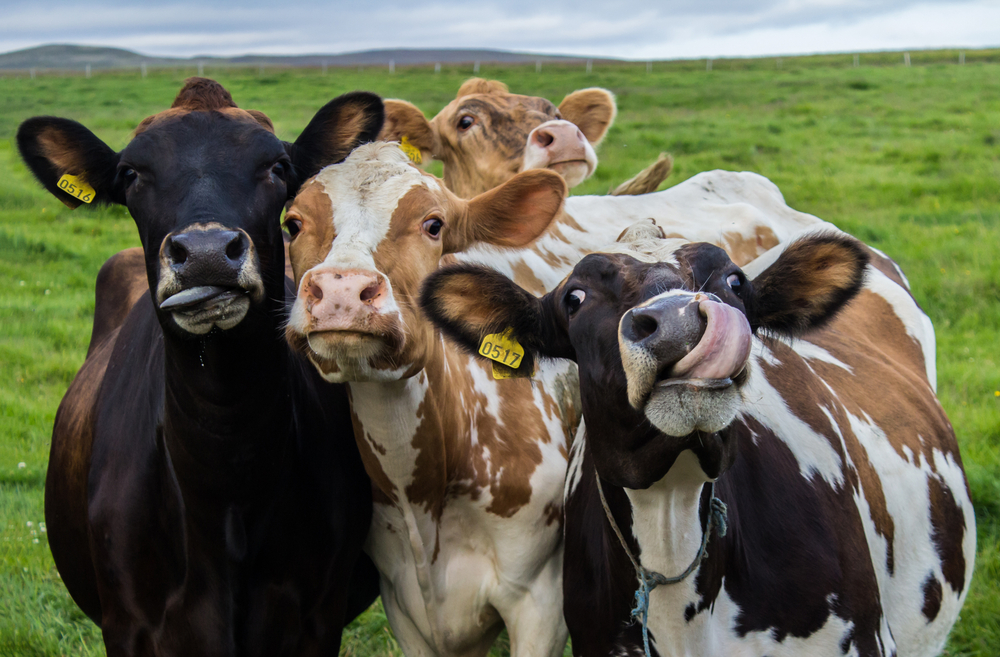More Cows Needed to Reverse Climate Change, Experts Say
In a little-noticed presentation on Dec. 9, 2023, at COP28 in Dubai, a panel of soil experts presented the case for cows as climate allies, not gas-spewing destroyers.
The event, titled “Conscious Livestock Rearing and Soil Health,” discussed “animal rearing’s impact on soil health, and its place as a part of the climate solution.” Contrary to the anti-cow cacophony of the climate crisis crowd, these experts explained the vital role ruminants like cows play in nourishing and rebuilding precious soils. It turns out, grazing cows sequester massive amounts of carbon.
On the panel of experts was Seth J. Itzkan, co-founder of SOIL4Climate, Inc., a nonprofit that “promotes soil restoration as a climate solution,” and a man akin to a Lorax for the cows. (READ MORE: French Farmers Are Fighting Woke Climate Policies in Paris With Tractors)
“I would respectfully push back against the less animals narrative,” Itzkan said, referring to calls to reduce the number of cows on the planet. “I actually don’t think there’s nearly enough,” he continued. “I think we’re going to need way more ruminants on the Earth, maybe twice as many as there are now, and they will need to be managed in this way that is beneficial.”
The Case for More Cows
Bill Gates, Klaus Schwab, and globalists of their ilk, claim humans must cut back on meat to save the planet from doom. The entire argument is premised on claims of enteric methane emissions from cattle confined in unnatural factory operations: Rotationally grazed cows sequester more carbon dioxide in the soil with their manure than they emit when they burp. Cow manure rebuilds soils destroyed by synthetic fertilizers and other chemicals, nurturing microbial life that feeds on methane. Robust natural soils sequester more carbon dioxide than forests, yet bovines are denied any carbon credit. (READ MORE: Roberts and Milei Set Fire to Libs at Davos)
Itzkan was one of many soil and agriculture experts on hidden display at the global climate summit who explained that soil health is a key element of effective environmental stewardship and that ruminants are integral to that ancient cycle. Itzkan argued that:
[G]rasslands, the second largest ecosystem on the planet after the oceans, coevolved with extensive herds of grazing ruminants. These migratory mammals were essential to giving grasslands their fertile soils which store an enormous amount of carbon. A great deal of this carbon has been lost because of poorly managed cropping and grazing. However, ecologically beneficial cropping techniques, and grazing in a way that replicates the behavior of wild herds, can replenish much of this essential element.
Where the Buffalo Roam
North America’s legendary bison herds once thundered across the Great Plains nurturing soils and the entire ecosystem. Efforts to eradicate the buffalo to undermine Native Americans starved the precious soil microbiome; subsequent compaction and tilling by tractors and equipment gradually weakened and eroded topsoils. Synthetic fertilizers (manufactured from natural gas, aka methane) replaced bison manure, while various chemical concoctions began killing off soil microbes, poisoning wells, and wiping out colonies of vital honeybees. (READ MORE: The Buzz on ‘The Great Honey Bee Die-Off’)
The push to eliminate cows has been crafted by the same industrial forces that imprisoned them in Confined Animal Feed Operations (CAFOs). Synthetic and fake meats grown from soy or corn harvested with tractors and chemicals do not rebuild soils, instead accelerating erosion and the release of carbon dioxide into the atmosphere. Cows returned to roam the fields and hillsides converting grass to meat and milk while replenishing soil health naturally.
Cows are not the cause, but the solution, of climate change. Humanity needs more cows, not fewer! Those who say otherwise are simply manure deniers.
Source: American Spectator





